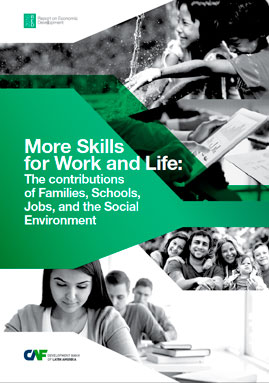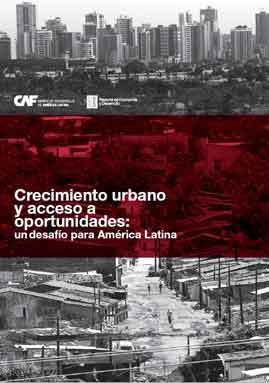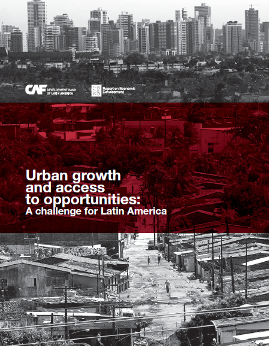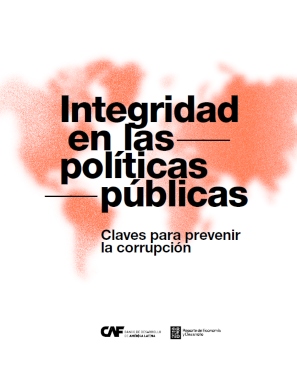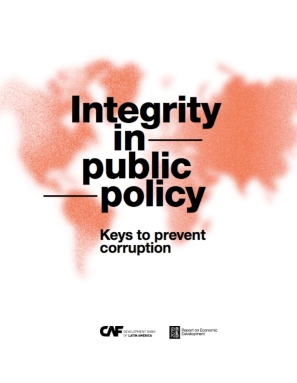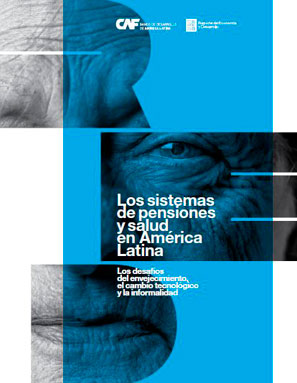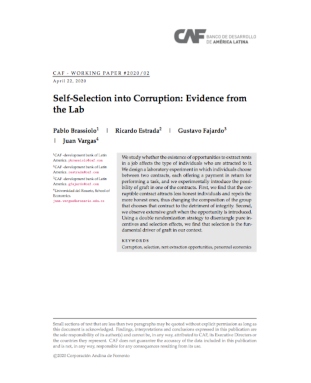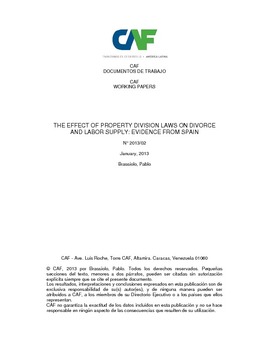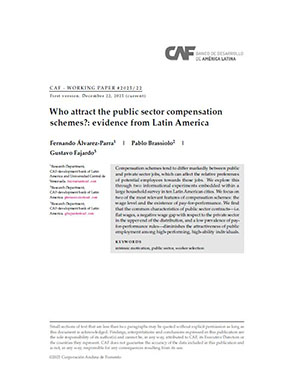Listar por autor "Brassiolo, Pablo"
Mostrando ítems 21-32 de 32
-
RED 2016. More Skills for Work and Life: The contributions of Families, Schools, Jobs, and the Social Environment
Berniell, Lucila; de la Mata, Dolores; Bernal, Raquel; Camacho, Adriana; Barrera-Osorio, Felipe; Álvarez, Fernando; Brassiolo, Pablo; Vargas, Juan (CAF; Caracas, 2017-06-16)Skills are the mainstay of human capital. They are the capabilities that a person has to effectively solve different problems. Skills include not only knowledge or abstract reasoning, but also aspects of personality, beliefs ... -
RED 2017. Crecimiento urbano y acceso a oportunidades: un desafío para América Latina
Daude, Christian; Fajardo, Gustavo; Brassiolo, Pablo; Estrada, Ricardo; Goytia, Cynthia; Sanguinetti, Pablo; Álvarez, Fernando; Vargas, Juan (CAF; Bogotá, 2017-09-13)Este reporte constituye un esfuerzo por entender los retos más críticos que las ciudades de América Latina enfrentan actualmente para su desarrollo. Para ello se resalta el concepto de accesibilidad, es decir la capacidad ... -
RED 2017. Urban growth and access to opportunities: a challenge for Latin America
Vargas, Juan; Brassiolo, Pablo; Sanguinetti, Pablo; Daude, Christian; Goytia, Cynthia; Álvarez, Fernando; Estrada, Ricardo; Fajardo, Gustavo (CAF; Bogotá, 2017-09-14)This report seeks to understand the most critical development challenges currently faced by Latin American cities. Special attention is given to the concept of accessibility, that is, the capacity of households and firms ... -
RED 2019: Integridad en las políticas públicas. Claves para prevenir la corrupción
Fajardo, Gustavo; Sanguinetti, Pablo; Vargas, Juan; Brassiolo, Pablo; Estrada, Ricardo; Berniell, Lucila; de la Mata, Dolores (CAF; Caracas, 2019-11-07)La corrupción está instalada desde hace tiempo en América Latina como una de las principales preocupaciones de la población. Razones no faltan, pues las consecuencias de este problema sobre el desarrollo no deben subestimarse. ... -
RED 2019: Integrity in public policy. Keys to prevent corruption
Fajardo, Gustavo; Sanguinetti, Pablo; Vargas, Juan; Brassiolo, Pablo; Estrada, Ricardo; Berniell, Lucila; de la Mata, Dolores (CAF; Caracas, 2020-03-23)Corruption has long been installed in Latin America as one of the main concerns of the population. Reasons are not lacking, since the consequences of this problem on development should not be underestimated. In addition ... -
RED 2020: Los sistemas de pensiones y salud en América Latina. Los desafíos del envejecimiento, el cambio tecnológico y la informalidad
Álvarez, Fernando; Brassiolo, Pablo; Toledo, Manuel; Allub, Lian; Alves, Guillermo; De la Mata, Dolores; Estrada, Ricardo; Daude, Christian (CAF; Caracas, 2020-11-02)La protección social de siglo XXI en los países de la región estará fuertemente condicionada por la informalidad laboral, la automatización y digitalización de los procesos productivos, y, especialmente, por el envejecimiento ... -
Self-Selection into Corruption: Evidence from the Lab
Brassiolo, Pablo; Estrada, Ricardo; Fajardo, Gustavo; Vargas, Juan (CAF; Caracas, 2020-04-22)We study whether the existence of opportunities to extract rents in a job affects the type of individuals who are attracted to it. We design a laboratory experiment in which individuals choose between two contracts, each ... -
Soluciones cercanas: el papel de los gobiernos locales y regionales en América Latina y el Caribe
Alves, Guillermo; Brassiolo, Pablo; Buccari, Florencia; Camacho, Carolina; Cifuentes, Rodrigo; Estrada, Ricardo; Fajardo, Gustavo (2025)La edición 2025 del Reporte de Economía y Desarrollo (RED) de CAF aborda el complejo desafío de la descentralización gubernamental en la región. Este proceso, en constante evolución, ha buscado fortalecer las competencias ... -
Soluções próximas: O papel dos governos locais e regionais na América Latina e no Caribe
Alves, Guillermo; Brassiolo, Pablo; Buccari, Florencia; Camacho, Carolina; Cifuentes, Rodrigo; Estrada, Ricardo; Fajardo, Gustavo (2025)A edição 2025 do Relatório de Economia e Desenvolvimento (RED) da CAF aborda o complexo desafio da descentralização governamental na região. Este processo, em constante evolução, tem buscado fortalecer as competências das ... -
The effect of property division laws on divorce and labor supply: evidence from Spain
Brassiolo, Pablo (CAF; Caracas, 2013)I study how the relative bargaining position of spouses affects the incidence of marital dissolution and the labor supply decision of intact couples. I identify exogenous variation in bargaining position within the household ... -
Towards a safer Latin America. A new perspective to prevent and control crime
Sanguinetti, Pablo; Ortega, Daniel; Berniell, Lucila; Álvarez, Fernando; Mejía, Daniel; Castillo, Juan Camilo; Brassiolo, Pablo (CAF; Bogotá, 2015-04)This year’s Report on Economics and Development (RED) proposes an approach for the analysis of insecurity in which crime results from decisions made by individuals in a particular situation. While it is true that beliefs, ... -
Who attract the public sector compensation schemes?: evidence from Latin America
Álvarez-Parra, Fernando; Brassiolo, Pablo; Fajardo, Gustavo (CAF; Caracas, 2021-12-22)Compensation schemes tend to differ markedly between public and private sector jobs, which can affect the relative preferences of potential employees towards those jobs. We explore this through two informational experiments ...


